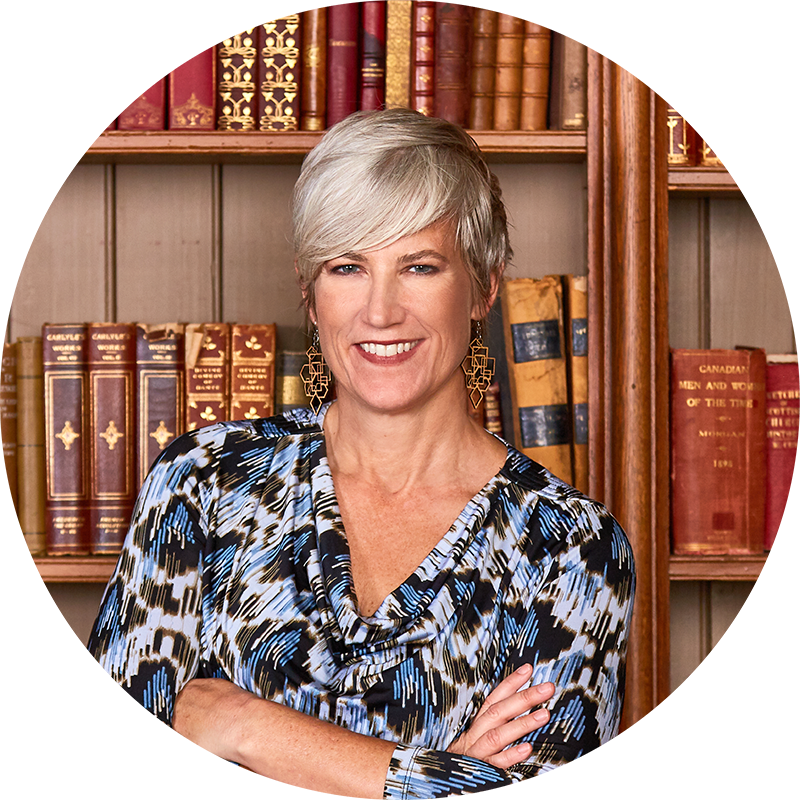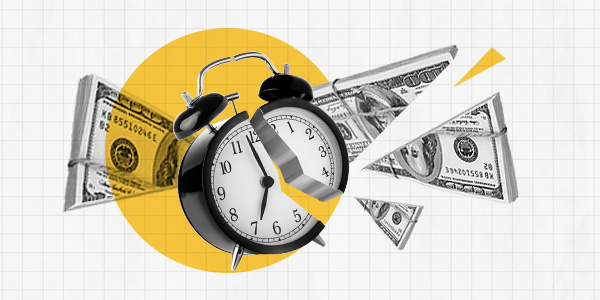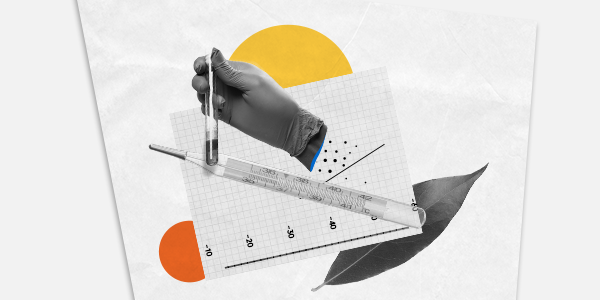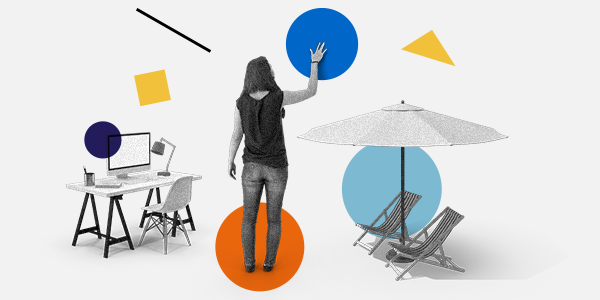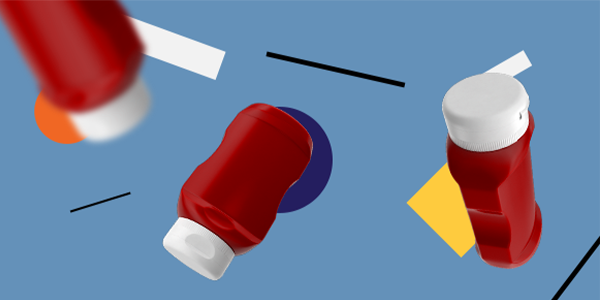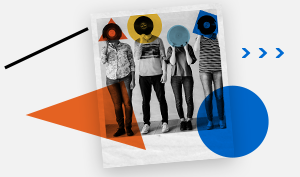 Barbara Kahn is Patty and Jay H. Baker Professor of Marketing and the Director of the Jay H. Baker Retailing Center in the Wharton School at the University of Pennsylvania. An internationally recognized scholar on variety seeking, brand loyalty, retail assortment issues and patient decision-making whose research provides marketing managers with a better understanding of the consumer choice process, Barbara’s work is highly influential in both academia and business.
Barbara Kahn is Patty and Jay H. Baker Professor of Marketing and the Director of the Jay H. Baker Retailing Center in the Wharton School at the University of Pennsylvania. An internationally recognized scholar on variety seeking, brand loyalty, retail assortment issues and patient decision-making whose research provides marketing managers with a better understanding of the consumer choice process, Barbara’s work is highly influential in both academia and business.
In this conversation, Barbara speaks with Kelly Peters about how to define and measure customer loyalty, the factors that influence loyalty in the marketplace, the way COVID-19 is disrupting loyalty, the way consumers interact with companies, and much more.

Kelly: “Customer loyalty has been defined in so many different ways by different business leaders. And then there's also this difference between how business people define loyalty And then how scientific and academic researchers defined loyalty. Can you help us just cut to the chase? And I'd love to get your point of view on what is customer loyalty?”
Barbara: “When I started my career, I was a stochastic modeler. I actually I've moved a lot since then to become more of a behaviorist. But at the time, I was a modeler, and we had a very precise definition of loyalty, which was basically the probability that you would purchase the same thing twice was higher than the probability you would purchase it only once”… “Now, the problem with that measure as just a metric is it could be habit, it could be behavioral loyalty, then you start to get into other definitions of what's driving that repeat behavior. So, is it habit? Is it mindless? Is it reinforcing? Is it that you tried something and you liked it so much, you want to buy it again? Or is it that you tried something and you just bind it without any thought. There's a lot of different flavors of loyalty, even in a precise definition like that.”
“More often lately, loyalty is thought of in a more strategic way, as a completely different philosophy of marketing. And the philosophy of marketing says something like it's better to get customer better to target to a group of customers that really liked what you're doing, and to try to get them to purchase more over time it so that you're maximizing what's called the lifetime value of the customer. And the idea there is that it's cheaper to sell more product to an existing customer than it is to keep trying to get new customers. And in that sense, customer loyalty is a strategic decision to go after a particular segment of customers and get more behavior from them or more purchases from them over time.
And the idea of loyalty there, like that idea came in, I would say in the early 90s, where marketers used to just try to maximize purchase behavior, I just try to get you to buy what you bought for, you know, to buy my product. And in really bad sales, people might do whatever it would take to get you to buy what I bought. And the idea of loyalty, you know, really started with the idea of customer satisfaction, the idea that it's not just making the initial purchase, it's what customers think after the purchase that matters, because what you really want to maximize is the next purchase. And that I think, is the idea of loyalty—not the initial purchase, but the subsequent purchase.”

Kelly: What do you think the best way is for companies to measure that loyalty? …Do you think that the complexity of retail and the availability of the data and the modeling that you described does that does that potentially challenge the utility of one question loyalty measures?
Barbara: “When I look at some of the sophisticated modelers and their measurement of all of this behavior, it has a lot of predictive ability. If you look, and they'll talk about like conversion, and what's the item that's going what what are the variables that are going to best predict conversion. And they, they're pretty good at predicting that, they have a lot of data. And they can tell you under these circumstances, and if you put the ad up here, or if you make the background blue, or all these different factors, they can really run huge models in the likelihood that they predict you're likely to purchase or purchase again, under these circumstances. That's pretty high. You know, you get enough data and you get pretty good conversion.
But the problem with that is you're not getting inside people's heads, you're not getting at their perceptions. So you might not be able to predict what they're likely to do if something changes or something like that, because a lot of those models are based on historic data. So you're really not knowing what's going on in their head.
On the other hand, when you do any other kinds of more behavioral experimentation, where you are trying to isolate everything else out and just look at particular things that you're testing in an experiment, then that might not generalize to the real world, when the real world is chaotic, and all these other factors are coming in. So I kind of like to do research on all these different levels. I'd like to look at the real marketplace and see what we can learn from that kind of data. And then I really am a believer in experiments so that I can understand what actually moves behavior one way or another.” 
Kelly: So, given what you've said about loyalty, and the factors that have been important to it in terms of the overall experience, how does loyalty look today [in the context of COVID-19]? And how are retailers either winning on loyalty or being negatively impacted? You know, some of this is I'm asking you to predict what changes we might have to loyalty as a result of a landscape that's changing every single day?
Barbara“I’ve been thinking about that in retail, as it is so affected by all of this, but the implications of all of this is true for any industry that's affected by in person behavior… there's like big, big parts of industry that are affected by all this COVID isolation and social distancing that's happening. It's just having a mammoth effect.”
“…So what are the kinds of things that you have to do right now to cope with the fact that at least for the time being, many people are practicing home isolation, social distancing, and things like that. And in some things, you can think of that as natural experiments, because you're forcing people to do something or another. It's kind of interesting to see what happens. So you're seeing immediate reactions to social distancing and to home isolation. First of all, the closing of stores, the changing of the hours stores can go, putting Plexiglass up, you know, in stores or having people walk in a certain way wearing masks, all of those kinds of things, curbside delivery. That is tactical reaction to ‘here's what's happening’. Here's the only way I can transact. And you can watch which ones of those are more effective or not effective. And as non essential retail starts to open up, as we get to do more things we've learned from what we're learning in grocery, and then there are lessons there, but that's very much a short term, hopefully a short term reaction.”
“…to me what's more interesting is… when it opens up a little bit, and we try to go back to normal. What will be the changes in behavior that will be fundamentally different for having been through this, let's say, global experiment? So I think you'll see some behavior. I mean, and that's some of the trends people are trying to predict, because it has very big implications for how you design business going forward. So one, from a retail point of view, one of the things that's the big question, and it's clear to me that the winners are the ones who already anticipated this, which is, how do people who've never bought online, go back when you don't have to if Amazon's not the only choice, how important is online purchasing to you once you've experienced it, if you've never experienced before, if you have used it before, and now you're using it more often, what happens when the world opens up?
What I think you will see though, is a mega-trend in retail is with merging towards what the retailers call omni-channel experience. So I don't think people will think about it as either online or offline. I think they start to think about retail as a merging of online and offline. And we're being forced into that. … that's where I think retail is going to go forward.”

Kelly: What things come to mind in terms of building on or leveraging existing loyalty or actually trying to create loyalty for small businesses that have never felt this pressure to worry about omni-channel strategies and e-commerce capabilities? They had their little store, they had their regulars, life was life was okay or good? What steps do you think that the small business owners should be taking in in the near term?
Barbara: “smaller retailers who don't necessarily have a robust online existence right now. That's going to be something that people are going to start to expect.”…” And if you're not at that level yet, that's you're going to be left behind because that's going to be the new expectation.”
“One of the reasons I do think the small retailers matter is because it's the life of a city, Main Street or a town Main Street, and to not have these if these retailers these small retailers went away. I think a lot of the quality of life In a lot of towns and cities would go away. And this idea of boarding themselves up and you know, closing themselves off for one month, two months, three months, that could have a negative effect also even even if it's not even that conscious, but you see, you're missing the opportunity to engage in some kind of omni channel shopping possibility. But even more than that, you're missing the opportunity to signal you're part of this community, you're part of the environment.”
“small business owners are going to have to create products and services that people would prefer to buy in a real store. Now, what are those, sometimes it's a social interaction. Sometimes it's things like food, or sensual kinds of things touch and feel, smell, you know those kinds of things. Sometimes you need it even faster than you can get it in a two hour delivery. Sometimes you want it for the leisure, or the entertainment of getting out of your house. All of those are going to be reasons that people absolutely want to go into a physical store. But for the store to compete, they're going to have to make sure they do all of those things right. Or, or there won't be a reason to go to the store.“
“I think COVID is going to add and it's essential is that customers are going to have to feel comfortable and trust when they go into the store. I believe the better retailers will have thermometers will indicate or you know, temperature sensors or they will have indication that they are there more than clean with their disinfecting, they will do these physical signals that will tell you I am a retailer that cares about your health, and I am aware of the things that matter to you. And if they start signaling that that will build getting back to your initial questions about loyalty, I will trust you. I think trust is very, very important here. And it's trust that's going to build the loyalty over time. And then I'll prefer to buy from you then from these other things, because I enjoy the relationship”


